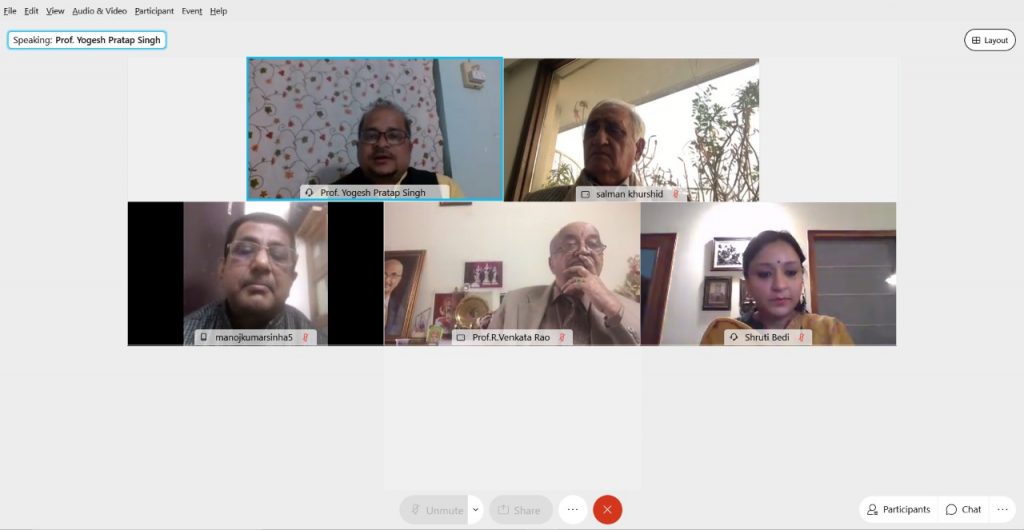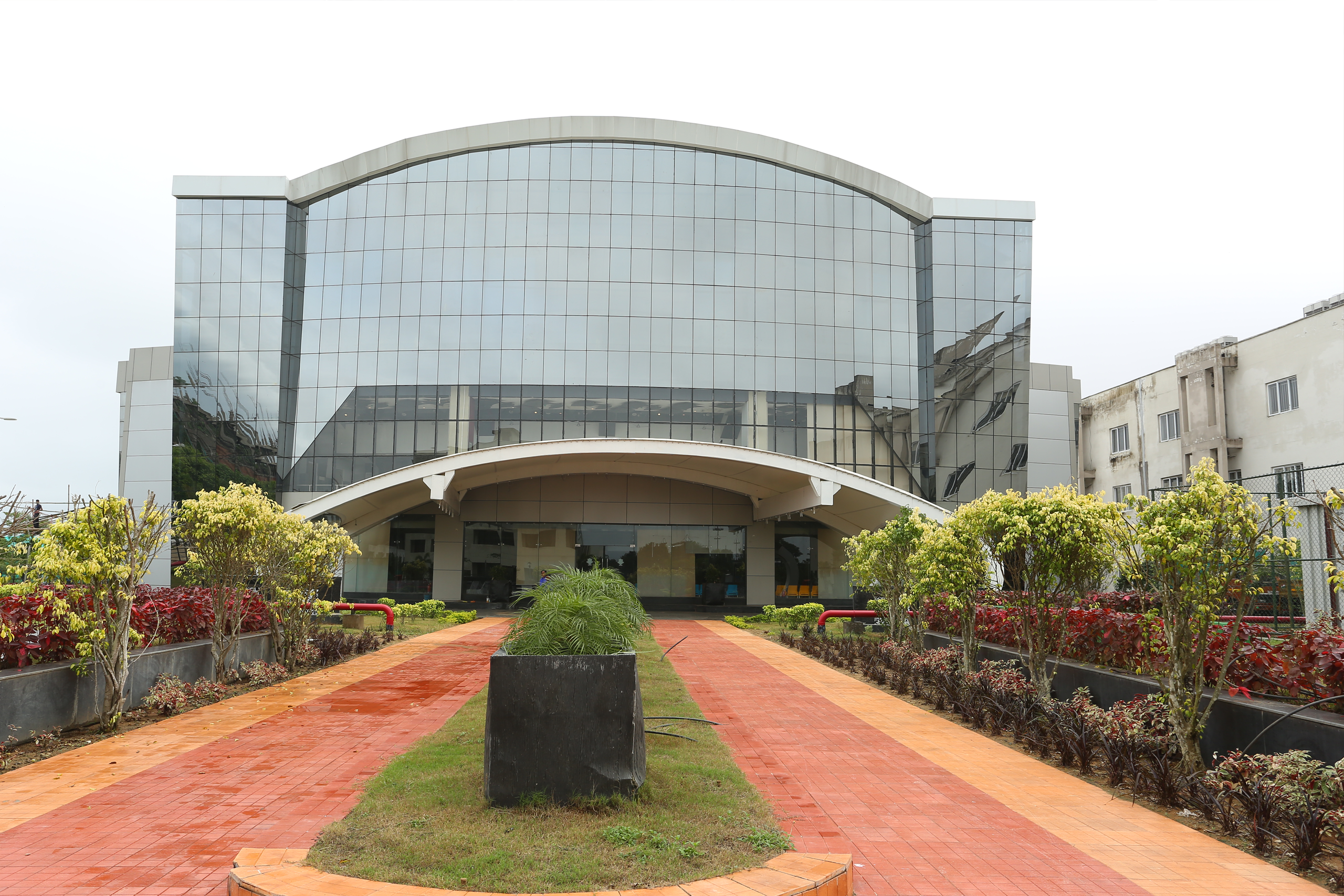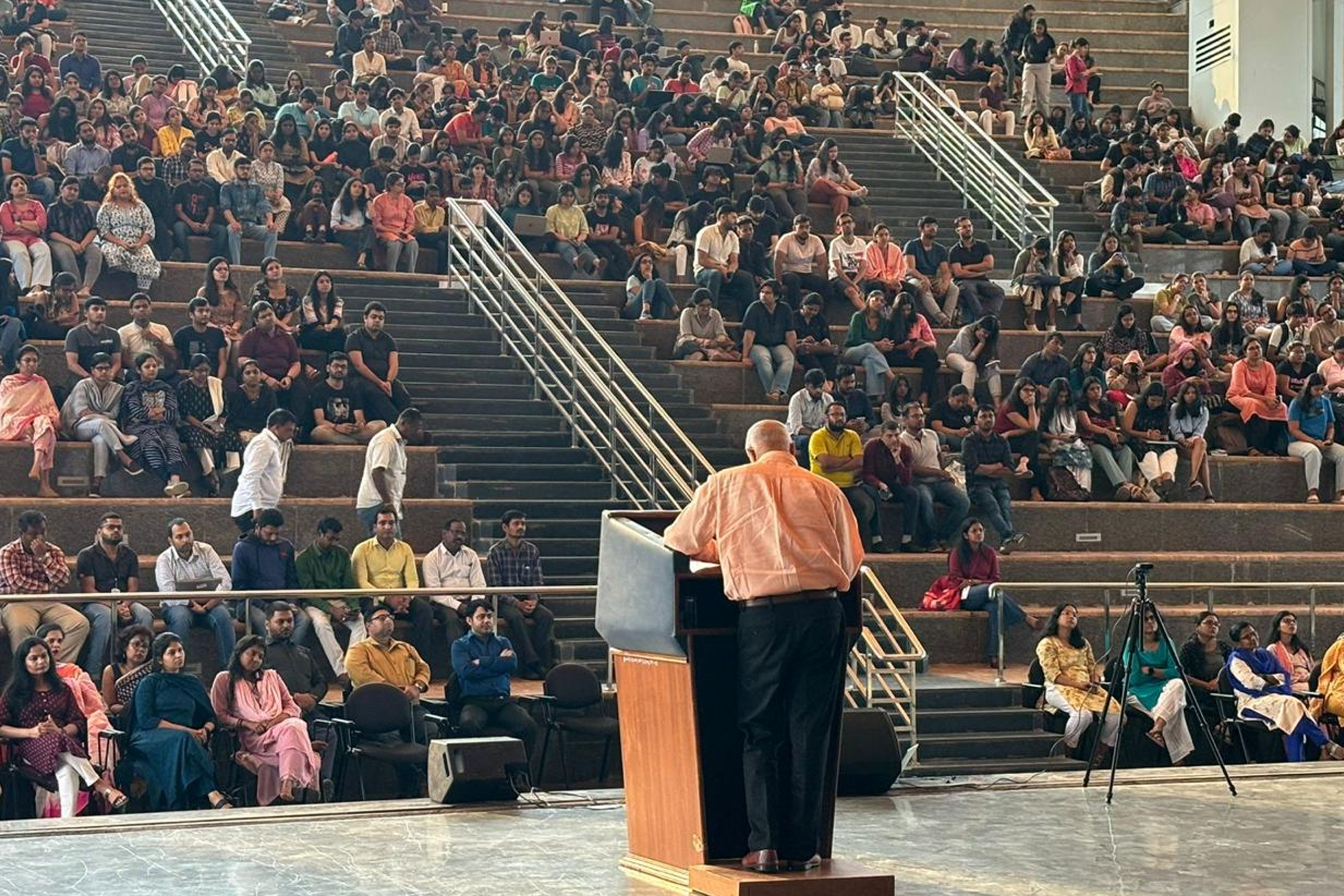“Dr. Zakir Hussain Memorial Lecture 2021 on ‘The New Education Policy and Legal Education by Constitutional Law Society of NLUO.”
“Dr. Zakir Hussain Memorial Lecture 2021 on ‘The New Education Policy and Legal Education by Constitutional Law Society of NLUO<.”
On 30th January 2021, The Constitutional Society of National Law University Odisha, under the aegis of Hon’ble Vice-Chancellor (I/C) Prof. (Dr.) Yogesh Pratap Singh successfully organised the Dr Zakir Hussain Memorial Public Lecture 2021<on ‘The New Education Policy and Legal Education’. Prof. (Dr.) R. Venkata Rao <(Former Vice Chancellor, National Law School of India University Bangalore) and Prof. (Dr.) Yogesh Pratap Singh< (Vice Chancellor In-Charge, National Law University Odisha) were the distinguished Guests of Honour for the lecture. The lecture was delivered by Prof. (Dr.) Manoj Sinha<(Director, Indian Law Institute, New Delhi) and presided by Mr. Salman Khurshid< (Senior Advocate, Supreme Court & Former Union Minister of Law and Justice & External Affairs). The concluding remarks and Vote of Thanks were given by Dr. Lokendra Malik< (Advocate, Supreme Court of India). The discussion during the session was moderated by Prof. (Dr.) Shruti Bedi< (Professor of Law, UILS Punjab University).
The public lecture started with the welcome address by Prof. (Dr.) Yogesh Pratap Singh in which he deliberated upon the possible implications that the New Education Policy, 2020 will have on the Legal Education system in India. Pointing towards the vision of the NEP of replacing the single disciplinary university system by multi- disciplinary system by 2030, he analysed how the NEP aims at reforming the legal education system in order to make it globally competitive.
Prof R. Venkata Rao followed Mr. Singh in this lecture. Having groomed generations of legal students under his guidance in achieving meaningful education, he took the discussion further by first quoting the objective behind NEP’s reform- “we live in a way of innovation, not renovation”. He raised some very important points that, in his opinion, ought to be addressed and deliberated upon. Some of these included how legal and medical education have been widely excluded from the realm of NEP’s reforms. Further, he corroborated to Mr. Yogesh Singh’s point to question if multiple exit points in legal education needs to be revived. In his view, scrutiny in legal education is of utmost importance, because career of students are at stake, and multiple pathways to learning need to be acknowledged. In light to these concerns, he also raised pertinent questions regarding the bar council’s responsibility towards legal fraternity, vis-a-vis legal education reforms.
Prof. (Dr.) Manoj Sinha then took a holistic approach to explain the impact of NEP at the higher education system of India. Heemphasised on the importance of teachers training program and why the state universities should consider offering bi-lingual education. In his concluding remarks, Prof Sinha reflexed upon the report on NEP which requires the state-affiliated 1600 law universities across the nation to make an effort to achieve autonomy by 2030-2040, there by presenting a comparative analysis of the pros and cons of this rule.
The discussion was then taken forward by Mr. Salman Khurshid who touched upon the intrinsic roles that Mahatma Gandhi and Zakir Hussain played in contribution to legal education. To this, he added that there’s a responsibility shouldered on each one of us to think about our future, and to think about what beholds the future of legal education.
The event was concluded with some insightful remarks and vote of thanks by Dr. Lokendra Malik. Summarising the important points discussed by the distinguished guests present, Dr. Malik emphasised on the need of adopting multi- disciplinary legal education system for a better future.






